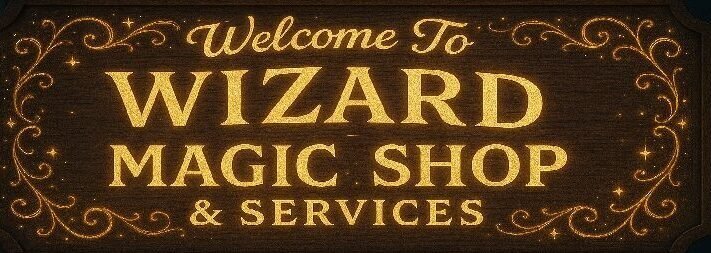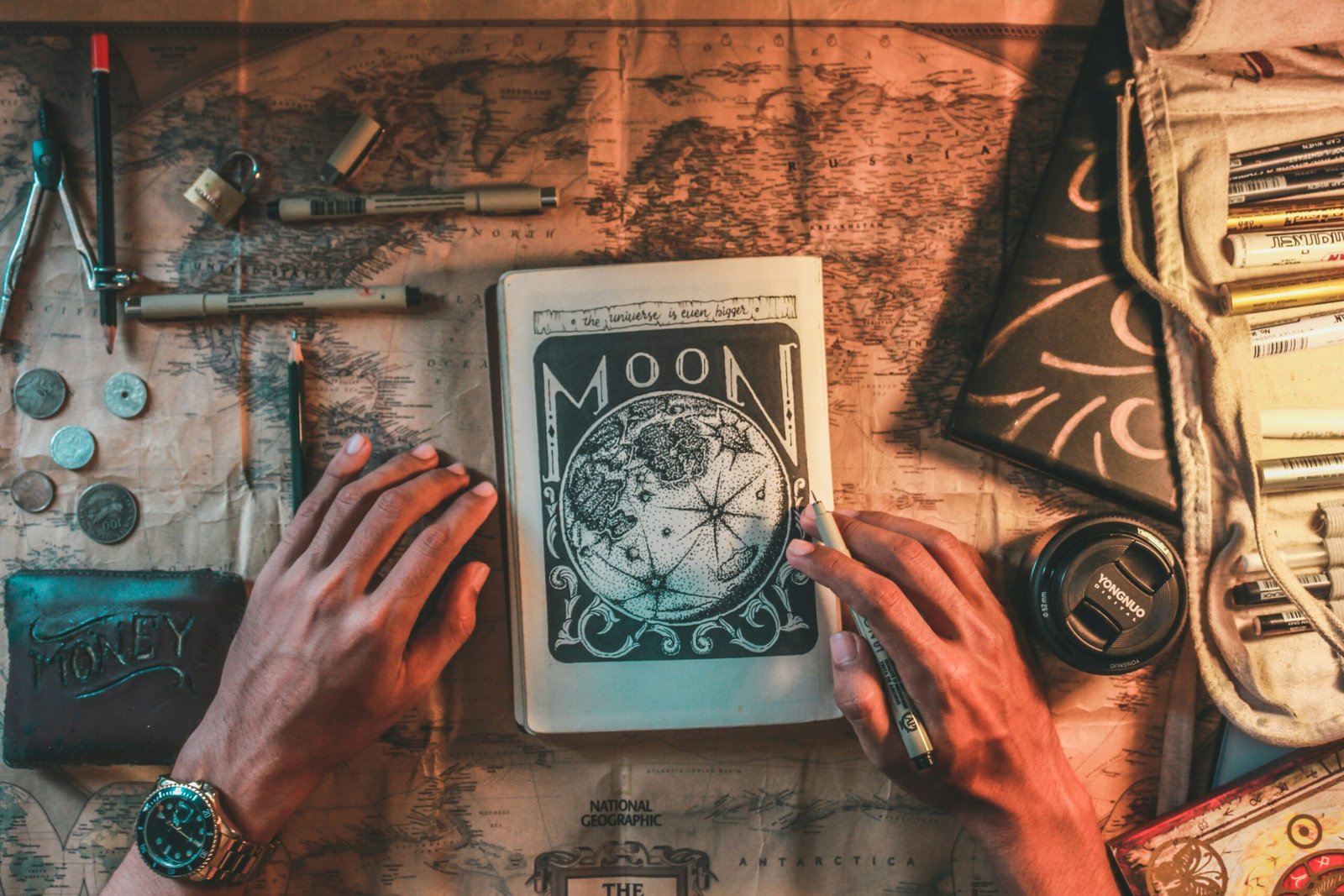Unveiling the Enchantment: Exploring the Magic Words of Magicians

Magicians have been using magic words as a part of their performances for centuries. These words are not just random phrases, but they hold deep significance in the world of magic. They are believed to have magical powers that can manipulate the forces of nature and bend reality. The origins of these magic words can be traced back to ancient civilizations, where shamans and sorcerers used them to communicate with spirits and cast spells.
One of the most well-known magic words is “abracadabra.” This word has become synonymous with magic and is often used by magicians to create a sense of anticipation and excitement. The exact origin of this word is unknown, but it is believed to have originated from the Aramaic language and was used as a healing spell. In ancient times, people would write “abracadabra” on an amulet and wear it around their neck to ward off evil spirits and diseases.
Another popular magic word is “hocus pocus.” This phrase is commonly used by magicians when performing tricks that involve the disappearance or transformation of objects. The origins of “hocus pocus” can be traced back to a Latin phrase used in the Catholic Mass, “Hoc est corpus meum,” which means “This is my body.” It is believed that magicians adapted this phrase and transformed it into “hocus pocus” to add an element of mystery and deception to their performances.
Magicians also use magic words from different languages to add an exotic and mystical touch to their acts. For example, the word “sim sala bim” is often used by magicians to create the illusion of making something appear or disappear. This phrase is derived from the Swedish language and is believed to have originated from the phrase “se i salen, bim!” which means “look in the hall, bim!”
In addition to these specific magic words, magicians also use a variety of incantations and spells to enhance their performances. These spells are often recited in a rhythmic and melodious manner, creating a hypnotic effect on the audience. The words themselves may not hold any specific meaning, but they are carefully chosen to create a sense of awe and wonder.
Overall, magic words play a crucial role in the world of magic. They add an element of mystery, excitement, and wonder to the performances of magicians. Whether it’s the classic “abracadabra” or the exotic “sim sala bim,” these magic words have the power to transport us to a world where anything is possible.
Magicians have long recognized the power of words in their craft. They understand that the right combination of words can captivate an audience and create a sense of wonder and amazement. The use of magic words is not limited to the realm of entertainment; it extends to various aspects of life. In fact, many people believe in the power of certain words to bring about positive change or manifest their desires.
Throughout history, different cultures have had their own sets of magic words and incantations. These words were often passed down through generations, carefully guarded by those who understood their significance. In ancient Egypt, for example, priests and sorcerers would use specific words to invoke the gods and perform rituals. In medieval Europe, wizards and witches would recite spells and enchantments to cast spells or protect themselves from harm.
While the effectiveness of magic words may be subject to debate, there is no denying their psychological impact. The power of suggestion plays a significant role in how we perceive the world and interpret our experiences. When a magician says the words “abracadabra” or “presto,” our minds are primed to expect something extraordinary. This creates a state of heightened anticipation and receptiveness, allowing us to be more easily amazed by the magician’s tricks.
Moreover, the use of magic words can also serve as a form of self-empowerment. By reciting affirmations or positive mantras, individuals can boost their confidence, overcome obstacles, and achieve their goals. These words act as reminders of our potential and the limitless possibilities that exist within us. They help to reframe our mindset and focus our energy on what we want to manifest in our lives.
It is important to note that the power of magic words lies not only in the words themselves but also in the intention and belief behind them. When spoken with conviction and faith, words have the ability to shape our reality and influence the world around us. This concept is at the core of many spiritual and metaphysical practices, where practitioners harness the power of words to bring about healing, transformation, and spiritual growth.
In conclusion, the power of magic words extends far beyond the realm of illusion and entertainment. Whether used by magicians to create awe-inspiring performances or by individuals to manifest their desires, words have the potential to shape our perception, influence our actions, and bring about positive change. So, the next time you hear a magician utter a seemingly ordinary word, remember that behind it lies a world of wonder and possibility.
Abra Kadabra, a phrase that has captivated audiences for centuries, holds a mystical allure that transcends cultural boundaries. Its origin can be traced back to ancient times, where it was believed to possess immense power and influence over the physical world. The Aramaic roots of this enchanting phrase imbue it with a sense of ancient wisdom and arcane knowledge.
When a magician utters the words “Abra Kadabra,” a transformation occurs. It is as if the very fabric of reality is manipulated, and the impossible becomes possible. Objects vanish into thin air, leaving spectators in awe and wonder. The magician, acting as a conduit for the forces of the universe, harnesses the power of language to shape reality itself.
The phrase “Abra Kadabra” is not merely a collection of sounds, but a manifestation of intent. It encapsulates the magician’s desire to create and shape the world around them. Through the act of speaking these words, they invoke the ancient forces that lie dormant within the depths of the human psyche.
Throughout history, countless magicians have used “Abra Kadabra” as their secret incantation, their key to unlocking the mysteries of the universe. From the grand stages of Las Vegas to the dimly lit parlors of Victorian England, this phrase has echoed through the ages, leaving a trail of wonder and amazement in its wake.
But what is it about “Abra Kadabra” that captures our imagination? Perhaps it is the inherent power of language, the ability to shape reality through the spoken word. Or maybe it is the sense of mystery and wonder that surrounds the phrase, the belief that there is something more to the world than meets the eye.
Regardless of the reasons, “Abra Kadabra” continues to hold a special place in the realm of magic. It is a symbol of the human desire to transcend the limitations of the physical world and tap into something greater. When we hear those words, we are transported to a realm where anything is possible, where the boundaries of reality are blurred, and the impossible becomes possible.
Simsalabim: Unveiling the Mystery of the Magical Phrase
In the world of magic, “Simsalabim” is a popular phrase used by magicians to create a sense of mystery and wonder. It is believed to have originated from the Swedish language and does not have a specific meaning. Magicians often use this phrase when performing tricks that involve producing something out of nothing or transforming one object into another.
The origins of “Simsalabim” can be traced back to the early days of magic, where illusionists would captivate audiences with their mesmerizing performances. The phrase itself is a combination of syllables that roll off the tongue with a certain rhythm, adding to the enchantment of the act. Its nonsensical nature adds an element of intrigue, leaving spectators spellbound and eager to witness the magician’s next move.
Although the exact meaning of “Simsalabim” remains a mystery, it has become a staple in the magician’s lexicon. Magicians utilize this phrase as a verbal cue, signaling the start of a trick or the climax of a performance. It serves as a trigger, capturing the audience’s attention and heightening their anticipation for what is about to unfold.
When a magician utters “Simsalabim,” it is as if they are invoking a secret incantation, summoning the forces of magic to bend reality to their will. The phrase acts as a catalyst, allowing the magician to tap into the hidden realms of illusion and create a moment of pure astonishment. It is a testament to the power of words and their ability to shape our perception of reality.
Magicians who master the art of “Simsalabim” understand that it is not merely a string of syllables, but a gateway to a world of wonder and enchantment. They spend countless hours perfecting their craft, honing their skills, and studying the intricacies of illusion. Through their dedication and meticulous attention to detail, they are able to create seemingly impossible feats that leave audiences both bewildered and amazed.
As spectators, we are drawn into the realm of the impossible, suspended between disbelief and awe. The utterance of “Simsalabim” becomes a transformative moment, where reality is momentarily suspended, and the boundaries of what we perceive as possible are shattered. It is a reminder that there is still magic in the world, waiting to be discovered and experienced.
So the next time you find yourself in the presence of a magician, listen closely for the familiar phrase “Simsalabim.” Allow yourself to be transported to a world where the impossible becomes possible, and where wonder and enchantment reign supreme. Embrace the mystery and let the magic unfold before your eyes.
Hocus Pocus
“Hocus Pocus” is another magic phrase that has become synonymous with the art of illusion. Its origins can be traced back to a 17th-century English play, where it was used as a parody of Latin incantations. Magicians often use this phrase when performing tricks that involve misdirection or sleight of hand.
The phrase “Hocus Pocus” has since transcended its comedic origins and has become deeply ingrained in the world of magic. It has become a staple incantation that magicians use to captivate their audiences and create an air of mystery and wonder. When uttered with theatrical flair, “Hocus Pocus” has the power to transport spectators into a realm where anything is possible.
In the realm of magic, misdirection is a crucial element of a successful performance. Magicians use various techniques to divert the audience’s attention away from the secret workings of their tricks. Whether it’s a quick flick of the wrist or a well-timed gesture, the magician’s goal is to create an illusion so convincing that the audience is left in awe.
When a magician utters the phrase “Hocus Pocus,” it serves as a signal to the audience that something extraordinary is about to happen. It is a cue for the spectators to suspend their disbelief and enter a realm where reality is temporarily suspended. The phrase acts as a trigger, heightening the anticipation and excitement in the room.
Magicians often pair the phrase “Hocus Pocus” with intricate hand movements or the waving of a wand, further enhancing the illusion. The combination of the verbal and physical elements creates a mesmerizing spectacle that captivates the audience’s attention. It is through these carefully choreographed movements and the power of suggestion that the magician is able to manipulate reality and leave the audience spellbound.
Over the years, “Hocus Pocus” has become a catchphrase associated with magic and illusion. It has been immortalized in countless performances, movies, and books, further solidifying its place in the lexicon of magic. From the grand stages of Las Vegas to the intimate settings of street magic, magicians continue to invoke the phrase “Hocus Pocus” as a testament to the enduring allure of their craft.
In conclusion, “Hocus Pocus” is a magical phrase that holds a special place in the world of illusion. Its origins may have been rooted in parody, but it has since evolved into a symbol of wonder and enchantment. When a magician utters these words, it is a signal for the audience to prepare for the extraordinary. With a wave of a wand and a theatrical flourish, the magician transports us into a realm where the impossible becomes possible, and the art of illusion comes to life.
Open Sesame
Derived from the famous tale of Ali Baba and the Forty Thieves, “Open Sesame” is a magic phrase that is often associated with unlocking or revealing hidden treasures. Magicians use this phrase when performing tricks that involve opening locked boxes, doors, or other containers to reveal surprises or secrets.
In the world of magic, the phrase “Open Sesame” holds a special significance. It is not just a simple combination of words, but a powerful incantation that has captivated audiences for centuries. When a magician utters these words, it is as if a portal to another realm is opened, and the impossible becomes possible.
The origins of the phrase can be traced back to the ancient story of Ali Baba and the Forty Thieves. In this tale, Ali Baba discovers a secret cave filled with treasures, which can only be accessed by uttering the words “Open Sesame.” These words act as a magical key, unlocking the hidden entrance to the cave and revealing its riches.
Over time, magicians have adopted this phrase as a symbol of their craft. It represents the ability to unlock the mysteries of the universe and reveal the wonders that lie beneath the surface. When a magician says “Open Sesame,” it is not just about opening a box or a door; it is about tapping into the limitless potential of the human mind and transcending the boundaries of what is considered possible.
The phrase has become synonymous with the art of illusion and deception. Magicians use it to create a sense of anticipation and wonder in their audiences. When they utter those words, everyone holds their breath, waiting to see what magical surprise will be revealed. It is a moment of pure excitement, where reality is suspended and the impossible becomes possible.
But “Open Sesame” is not just limited to the realm of magic. It has also found its way into popular culture, becoming a metaphor for unlocking hidden potential or discovering hidden truths. Just like the phrase itself, life is full of hidden treasures waiting to be uncovered. It is up to us to find the key and unlock the doors that stand in our way.
So the next time you hear the words “Open Sesame,” take a moment to appreciate the magic and wonder they represent. Whether it’s in a magic show or in your own life, remember that there is always something waiting to be discovered, something incredible just beyond the surface. All it takes is the right combination of words, the right mindset, and the willingness to believe in the extraordinary.
Abracadabra
No list of magic words would be complete without mentioning “Abracadabra.” This phrase has a long history and is believed to have originated from ancient Hebrew. It was used as a protective charm against illness and misfortune. Magicians often use this phrase when performing tricks that involve transformation or the appearance of something out of thin air.
The origins of the word “Abracadabra” can be traced back to the 2nd century AD, where it was first mentioned in a medical treatise by the Roman physician Quintus Serenus Sammonicus. In his work, he recommended wearing an amulet with the word “Abracadabra” written in a specific triangular shape to ward off diseases, particularly fever. The word was believed to possess magical powers that could cure ailments and protect the wearer from harm.
The popularity of “Abracadabra” as a magical incantation grew over the centuries, and it became widely known as a word used by magicians during their performances. The exact meaning of the word is still debated among scholars, but it is commonly thought to be derived from the Aramaic phrase “Avra Kehdabra,” which means “I will create as I speak.”
In the world of magic, “Abracadabra” is often used as a command to make something appear or disappear. Magicians utter the word with a flourish, creating an air of mystery and anticipation among the audience. It is a powerful word that symbolizes the transformative nature of magic and the ability of the magician to manipulate reality.
The use of “Abracadabra” extends beyond the realm of stage magic. It has become a popular phrase in popular culture, often associated with the idea of making something happen instantly or effortlessly. In movies and books, characters use the word to cast spells or perform extraordinary feats. It has become a symbol of the fantastical and the extraordinary, capturing the imagination of people of all ages.
In conclusion, “Abracadabra” is a magical phrase with a rich history and a wide range of meanings. From its origins as a protective charm to its use as a command in magic tricks, it has captivated the minds of people for centuries. Whether spoken by a magician on stage or used in everyday conversation, “Abracadabra” continues to evoke a sense of wonder and enchantment.
“Alakazam” is a magic word that is often associated with the act of making something appear or disappear. It is believed to have originated from a combination of Arabic and Hebrew words. Magicians use this phrase when performing tricks that involve producing objects or making them vanish in a flash. The word itself has a mystical aura, as if it holds the power to unlock hidden secrets of the universe. When uttered with precision and confidence, “Alakazam” has the ability to captivate an audience and transport them into a world of wonder and enchantment.
Throughout history, magicians have used various incantations and secret words to enhance the theatricality of their performances. These words, often shrouded in mystery and passed down through generations, add an element of intrigue and fascination to the art of magic. “Alakazam” is one such word that has stood the test of time and continues to be used by magicians around the world.
When a magician utters the word “Alakazam,” it serves as a signal to the audience that something extraordinary is about to happen. It is a cue for them to suspend their disbelief and allow themselves to be transported into a realm where the impossible becomes possible. The word itself has a rhythmic quality that adds to its allure. The syllables roll off the tongue effortlessly, creating a sense of anticipation and excitement.
But what is it about the word “Alakazam” that makes it so powerful? Some believe that its origins in Arabic and Hebrew lend it a sense of ancient wisdom and mysticism. Others argue that it is simply the sound of the word itself that holds the key to its power. Regardless of its true source, there is no denying the impact that “Alakazam” has on both the performer and the audience.
For the magician, uttering the word “Alakazam” is a moment of transformation. It is a declaration of their mastery over the art of illusion and their ability to manipulate reality. In that instant, they become the conductor of a symphony of wonder, guiding the audience through a series of breathtaking feats that defy explanation.
For the audience, hearing the word “Alakazam” is an invitation to let go of their skepticism and embrace the possibility of magic. It is a reminder that there is still room for amazement and wonder in a world that often seems predictable and mundane. In the presence of a skilled magician, the word “Alakazam” becomes a catalyst for awe and astonishment.
So the next time you find yourself in the audience of a magic show, listen closely for the word “Alakazam.” Pay attention to how it makes you feel and the sense of anticipation it creates. Allow yourself to be swept away by the power of this simple yet extraordinary word, and prepare to be amazed.
Shazam: A Word of Power and Mystery
Popularized by the fictional character Captain Marvel, “Shazam” has become a well-known magic word in the world of comics and magic. It is often used to invoke a magical transformation or summon supernatural powers. Magicians use this phrase when performing tricks that involve a sudden change or reveal.
The origins of the word “Shazam” can be traced back to ancient times, where it was believed to hold immense power. In ancient mythology, it was said that “Shazam” was the secret name of a powerful deity, whispered only by the chosen few who possessed the knowledge and ability to wield its magic.
Over the centuries, the word “Shazam” has been passed down through generations, carrying with it an air of mystery and intrigue. It is said that those who utter the word with true intent and belief can tap into its hidden powers, unlocking a world of limitless possibilities.
For magicians, “Shazam” has become a symbol of their craft, a word that signifies their ability to create illusions and astonish audiences. When a magician utters “Shazam,” it is as if they are channeling the ancient forces of magic, transforming the ordinary into the extraordinary.
But “Shazam” is not limited to the realm of magic tricks and stage performances. It has also found its way into popular culture, becoming a catchphrase for moments of sudden revelation or unexpected change. Just like the comics and movies that feature Captain Marvel, the word “Shazam” has become synonymous with the idea of a transformative experience.
Whether it is a character discovering their true potential, a person overcoming their fears, or a situation taking an unexpected turn, “Shazam” has come to represent the power of change and the ability to tap into hidden reserves of strength and courage.
So the next time you find yourself in need of a little magic or a moment of inspiration, remember the word “Shazam.” Utter it with conviction and belief, and who knows what wonders may unfold before your eyes.
Alohomora
Harry Potter fans will be familiar with the magic word “Alohomora.” In the wizarding world, this phrase is used to unlock doors and other locked objects. Magicians often use this phrase when performing tricks that involve unlocking or revealing hidden compartments or compartments.
But the concept of unlocking goes beyond the realm of magic and into our everyday lives. We encounter locked doors, safes, and even encrypted files that require the right key or combination to access. Just like in the wizarding world, unlocking these objects can bring a sense of excitement and curiosity.
In the world of technology, unlocking has taken on a whole new meaning. With the rise of smartphones and other electronic devices, we have become accustomed to using our fingerprints, facial recognition, or passwords to unlock our devices. This simple action grants us access to a world of information, communication, and entertainment.
However, unlocking is not always a straightforward process. It can involve complex algorithms, security measures, and authentication protocols. In the world of cybersecurity, experts work tirelessly to develop secure systems that protect our personal information from unauthorized access. They create intricate locks that require sophisticated keys, making it increasingly challenging for hackers to breach our digital fortresses.
But just as the wizarding world has its skilled magicians, the realm of technology has its own experts who specialize in unlocking the seemingly impenetrable. Ethical hackers, known as penetration testers, use their knowledge and skills to identify vulnerabilities in computer systems and networks. They play the role of the “good guys,” helping organizations strengthen their security by exposing weaknesses before malicious actors can exploit them.
The concept of unlocking extends beyond physical and digital locks. It can be applied to unlocking our full potential as individuals. We often find ourselves facing mental and emotional barriers that prevent us from reaching our goals or living our best lives. These internal locks can be fear, self-doubt, or limiting beliefs that hold us back.
Unlocking our full potential requires self-reflection, personal growth, and a willingness to step outside our comfort zones. It involves breaking free from the chains of self-imposed limitations and embracing new opportunities. Just like a magician unlocking a hidden compartment, we must unlock the doors of our minds and hearts to discover the endless possibilities that lie within.
So, whether it’s a magical incantation, a technological breakthrough, or a personal journey of self-discovery, the concept of unlocking is a powerful and universal theme. It reminds us that there is always more to explore, discover, and achieve if we are willing to find the right key and turn the lock.






